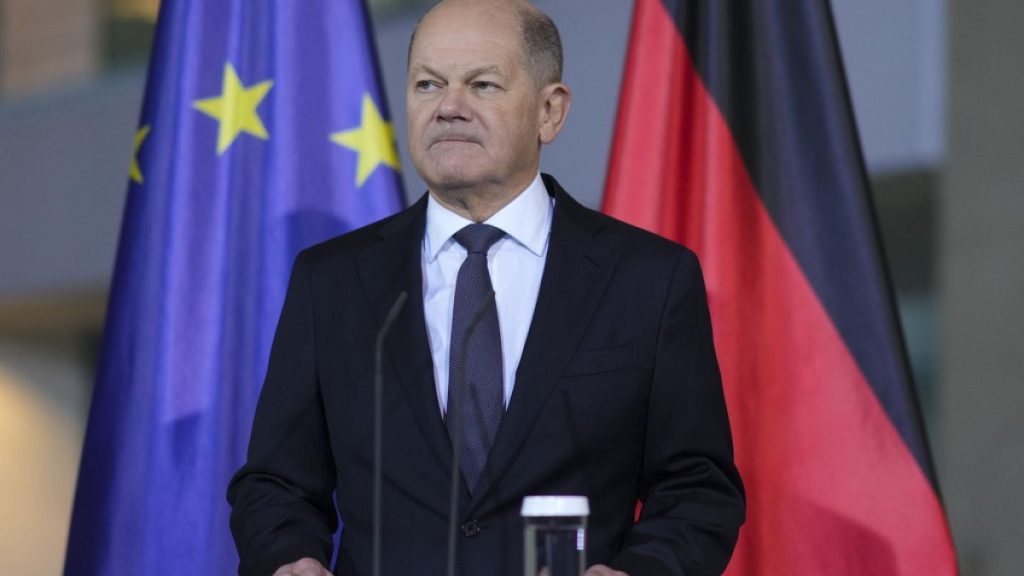Summarize this content to 2000 words in 6 paragraphs
German Chancellor Olaf Scholz has officially submitted his vote of confidence to the parliament before German MPs will vote on Monday.
But considering Germany’s economic instability what is at stake?
The last time a German chancellor asked a vote of confidence was almost 20 years ago. But December 16 will see German leader Olaf Scholz ask members of the Bundestag to vote if they still support him. Scholz is widely expected to lose the vote, which will see German President Frank-Walter Steinmeier dissolve parliament in under three weeks, paving the way for snap elections as early as February 23.Why is the vote being called now?The German government collapsed just hours after US President Donald Trump was elected for a second time, with Scholz firing German Finance Minister Christian Lindner in a surprising display of emotion that was on display during the press conference that followed.Since then, it has emerged that Lindner’s party pre-planned the break up of the coalition, and despite their best efforts to try to have early elections held early to claw back some popularity, there are concerns that the Liberals (FDP) won’t reach more than the 5% threshold needed to enter parliament.Professor of political studies Dr Hajo Funke says that whilst the FDP are the biggest losers of Scholz holding his vote of confidence, the other coalition parties are benefiting.”The SPD and Greens, on the other hand, appear to benefit from the coalition’s end. SPD leader Olaf Scholz feels liberated by the dissolution of the coalition,” he says.”There’s renewed debate about whether a ceasefire in Ukraine is possible. Scholz sees this as advantageous, especially as the Greens and CDU have supported escalation strategies that many in the public no longer favour. Second, there’s the economic crisis and differing approaches to tackling it. The CDU has been hesitant to adjust the ‘debt brake,’ although economists argue reform is necessary. Scholz’s SPD has a clearer stance on this compared to the CDU and Greens, who appear divided. Lastly, social issues such as housing affordability (e.g., rent caps) now fall under the SPD’s purview without FDP interference,” Funke adds.But what exactly is at stake with the new elections?With Germany’s economy continuing to stagnate as major companies such as Volkswagen, ThyssenKrupp and Bosch plan to axe tens of thousands of jobs and markets, including electric vehicles, move towards Asian markets, there is a risk that political instability could continue to discourage the economy from recovering.Funke says the political parties are feeling the pressure.”Given the severe crises in the automotive and steel industries, as well as among suppliers, coupled with extraordinarily low growth prospects compared to other countries, there is significant pressure to implement certain measures before the elections in two and a half months.”‘Divisive policies could sway voters'”These measures include reducing ‘cold progression,’ which is perceived as unfair, addressing rent control, and securing funding for Ukraine support, particularly regarding the Taurus decision. These are all highly debated points and will play a crucial role both before and during the election campaign,” he says.Despite Scholz’s Social Democrats (SPD) and the Greens no longer holding majority, they are making effort to work together with the Conservatives (CDU) regarding these economic and social decisions. CDU are currently leading in the polls.”The CDU, however, finds itself in a tactical dilemma: if it fails to act, it risks appearing socially and economically indifferent, which would not serve its interests. On the other hand, if it mishandles things now, it risks undermining voter trust in the party. Thus, some compromises will likely be made,” Funke adds.What is the most likely outcome?Funke says that there are two most likely scenarios: a coalition between the CDU and the Greens, or between the CDU and the SPD. “The SPD remains hopeful they could receive as many votes as the CDU, but that doesn’t seem probable at the moment. These two are the most likely coalition options.” he says.”Given the chaos of the current Ampel (traffic light) coalition, any new coalition, regardless of how long negotiations take, will strive for stability. The pressure to form an effective, socially sensitive, and peace-oriented government is immense. This urgency will influence voters, many of whom remain undecided – around one-third, at the moment. However, the political landscape is highly volatile, making this election cycle particularly unpredictable.”The three core issues, economic crisis management, social equity, and war and peace are going to be the key elements that decide the vote.
Keep Reading
Subscribe to Updates
Get the latest creative news from FooBar about art, design and business.
© 2026 Globe Timeline. All Rights Reserved.













